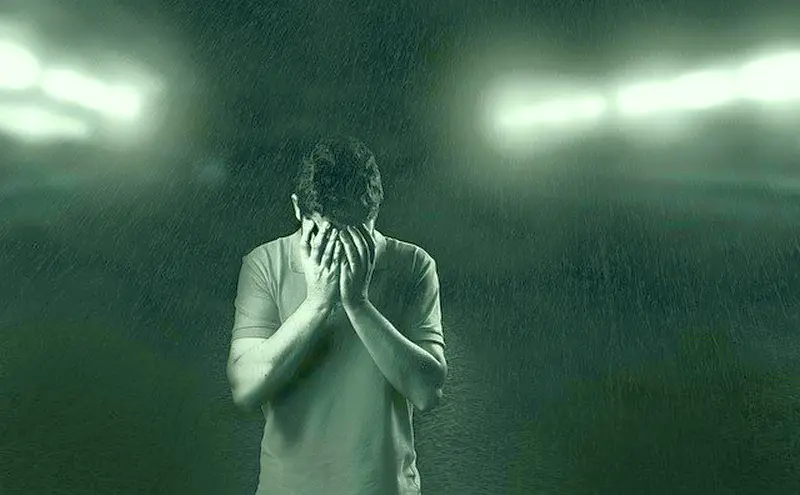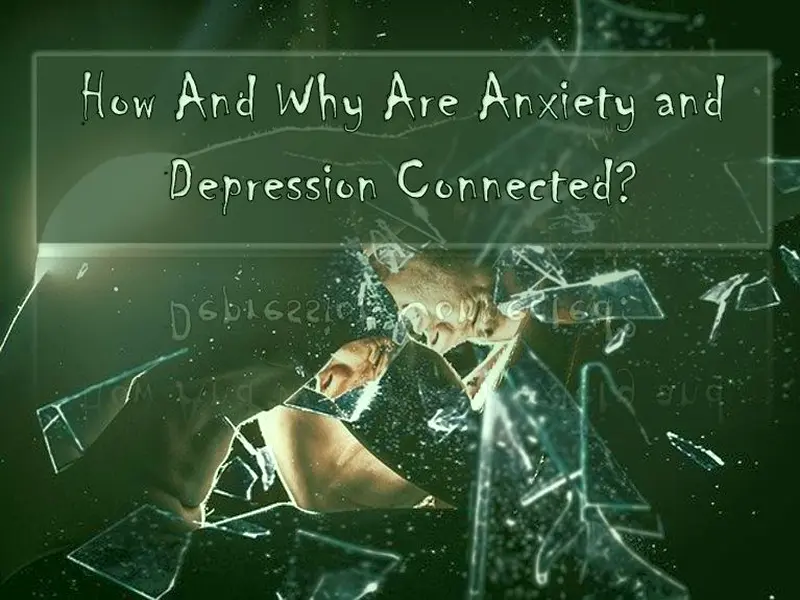While depression and anxiety are two distinct diseases, they are often connected with one another since they frequently co-occur.
Depression And Anxiety: How And Why Are They Connected?
Depression is characterized by a persistent sense of sadness and loss of interest, preventing you from engaging in typical activities. There are several different varieties of depression, with symptoms ranging from mild to severe in severity. In most cases, depression is not the outcome of a single incident but rather the effect of a combination of experiences and variables.
Anxiety is when ordinary events make you nervous and tense and are usually intense, overwhelming, and long-lasting. It is possible to experience a high heart rate, rapid breathing, perspiration, and fatigue when anxious. Anxiety is natural in stressful situations such as giving a public speech or passing a test, among other things. In cases where sensations of anxiety become extreme, all-consuming, and interfere with everyday activities. They are just a symptom of an underlying disease.
Signs And Symptoms Of Anxiety And Depression
When a person has anxiety and depression disorder, he might experience one or many of the below-mentioned symptoms.
- Worries or phobias that are irrational and keep lingering around the mind for long
- Physical signs and symptoms like tiredness, headaches, rapid heartbeat, difficulty breathing, or stomach pain are common in this condition.
- Having difficulty falling asleep or remaining asleep
- Modifications in eating habits — either an excessive amount or an insufficient amount
- Difficulties remembering, making decisions, or concentrating
- Sadness or worthlessness that persists without interruption
- Loss of interest in activities or goods that we before enjoyed.
- Feeling weary and irritable regularly
- Inability to unwind and enjoy the present moment
- Suffering from panic attacks, which include the feeling of losing inner control, is not uncommon.
How Are Anxiety And Depression Diagnosed?
Beyond the depressed person himself, depression is usually noticed by those around them; who notice that the depressed or anxious person is frequently lost in their world; becomes irritated and irrational over trivial things, and does not interact with their friends or family. When you begin to experience depression for the majority of your day on all day, and your friends or family members begin to express concern about your withdrawn behavior; seek medical assistance as soon as possible.
While anxiety and depression are typically diagnosed by observing a person’s behavioral changes; the doctor may also recommend that blood tests be performed to confirm the diagnosis. This is mainly due to a shift in hormone levels; such as those of the thyroid, resulting in anxiety and sadness. He may also inquire about your family history; as anxiety and depression attacks are typically passed down through families.

Treatment And Medication:
Antidepressants are usually prescribed to assist alter one’s brain chemistry. These drugs are not sedatives, “uppers”, or tranquilizers; as they are commonly known, and they do not have a habit-forming effect. When taken by individuals who are not suffering from depression, antidepressant drugs have little or no stimulant impact.
Even though antidepressants may generate some relief within the first week or two of use; they may not realize full benefits for two to three months after starting treatment.
Also Read: 12 Amazing Physical And Mental Health Benefits Of Cycling
Herbs To Help You Cope Up With Stress And Depression
Herbs that have been in use since antiquity are still effective in the treatment of stress in the majority of people. In this section, you’ll find three really effective plants.
Withanolides and steroidal lactones are active components in Ashwagandha; and they aid in managing a person’s stress levels and depression levels. Ashwagandha is a herb that we can use in powder or liquid form to help in the improvement of a person’s overall well-being. While many people complain of the pungent smell and taste of the Ashwagandha vitamin; the most convenient way to consume this beneficial herb is by taking it in the form of gummies. The gummies are very effective at beating stress and insomnia, but they are also delicious. Choose the certified, vegan, and cruelty-free one to rule out any possibility of side effects.
Rich in antioxidant chemicals and carotenoids such as crocin and crocetin; saffron is one of the best supplements for stress and anxiety and is lauded for its mood-enhancing properties. According to research; it has been shown to enhance the levels of the mood-enhancing neurotransmitter serotonin in the human brain.
In short, Brahmi is an adaptogen; which essentially means that it assists the body in adjusting to new or stressful situations by supporting the body in creating endorphins. Brahmi is a herb that is native to India. This medication raises the quantity of serotonin in the brain; which helps the mind remain calm and provides relief from feelings of worry and unrest.
Also Read: Best Ways To Reduce Stress And Anxiety
Importance Of Sleep In Overcoming Anxiety And Depression
Sleep problems can raise the likelihood of getting depression in the first place; and chronic sleep problems can increase the possibility of relapsing in those; who have previously been successfully treated for depression. Here are a few tips to help you get a good night’s sleep.
- CBT, interpersonal psychotherapy and psychodynamic therapy are some of the therapeutic paradigms; that might assist you in processing some of the underlying feelings and obstacles; that lead to depression and other mental health issues.
- Maintaining a constant bedtime and waking time allows you to get the 7-9 hours of sleep that you need.
- The ideal nap duration is between 10 and 20 minutes; which is referred to as a “power nap” in the industry. These power naps can aid in regulating our emotions, reducing drowsiness, and overall improvement in performance. After a night of excessive drinking, it is difficult to fall asleep and remain asleep.
- Spend some time in the fresh air. Solar radiation helps maintain the integrity of our internal clocks; known as circadian rhythms and provides clues as to when we should be alert and when to sleep.
Also Check: The Importance Of Sleep And How It Can Restore Our Body And Mind
Images by Josh Clifford, and Daniel Reche from Pixabay

